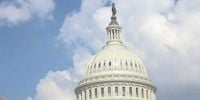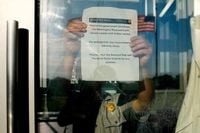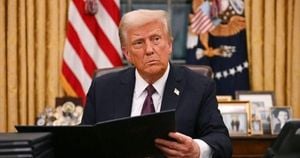The United States government entered its third consecutive day of shutdown on October 3, 2025, as budgetary battles in Congress left hundreds of thousands of federal workers in limbo and vital public services at risk. With no immediate end in sight, tensions are running high in Washington, and the economic and human toll is mounting by the hour. The White House has warned of possible mass layoffs if the impasse continues, and both political parties are locked in a blame game that shows no sign of abating.
The shutdown officially began on October 1, 2025, after lawmakers failed to agree on a budget for the new fiscal year. According to CBS News, the consequences were immediate and far-reaching: 800,000 federal employees were furloughed, while another 700,000 were forced to work without pay. Essential services—such as air traffic control, national security, and emergency response—remain operational, but many other government functions are paralyzed, from national parks to scientific research and public health initiatives.
"Federal workers are worried about potential furloughs or mass layoffs during the ongoing government shutdown," reported CBS News' Natalie Brand, echoing the anxiety gripping federal employees across the country. Neil Schneider, a member of the American Federation of Government Employees union, shared the fears of his colleagues, who face the prospect of missed paychecks and uncertain futures. The White House has not minced words about the gravity of the situation, cautioning that if the stalemate persists, "possible widespread layoffs" could become a reality.
The political standoff centers on unresolved budgetary disputes, with both sides accusing the other of intransigence. The Senate failed for the fourth time on October 3 to pass a short-term spending bill that would have funded the government through November 21, 2025. Only three Democrats joined Republicans in supporting the measure, which ultimately fell short in a 54-44 procedural vote. As reported by The Independent, Senate Majority Leader John Thune declared that senators were unlikely to reach a breakthrough soon, stating, "I'm not optimistic that more than just a few of them want to get to 'yes.'"
With the impasse dragging on, the shutdown is expected to continue through the weekend of October 4-5, and another potential vote to avert a looming crisis is tentatively scheduled for Monday, October 6. In the meantime, the effects on federal workers and the American public are becoming more pronounced with each passing day. According to multiple outlets, critical government services remain operational, but many others are paralyzed, intensifying the pressure on Congress to strike a deal.
The rhetoric in Washington has grown increasingly heated. President Donald Trump has threatened mass layoffs and the suspension of billions of dollars in funding to Democratic-led cities during the shutdown. In a statement, White House Press Secretary Karoline Leavitt accused Democratic members of Congress of "intentional sabotage," suggesting that lawmakers are nowhere near a deal. Trump himself has insisted that he did not want the government to shut down but framed the crisis as an opportunity to cut federal spending, a position that has drawn sharp criticism from his political opponents.
Senate Minority Leader Chuck Schumer, speaking to CNN's Jake Tapper, lambasted House Speaker Mike Johnson's decision to send House members home during the shutdown. "They seem to care more about protecting the Epstein files than protecting the American people and their healthcare," Schumer said, referencing a separate political controversy. "But even more outrageous is the fact that they're going home and they're getting paid. And what about the millions of federal workers who aren't getting paid? The people cleaning the cafeterias, the people in the air traffic control towers, the people who run the national parks." Schumer has called on GOP members to work with Democrats on a funding plan for federal healthcare programs, while Republicans have pushed for a "clean" stopgap spending bill to buy time for negotiating a full fiscal year budget.
For their part, House Democrats have demanded that Speaker Johnson bring the House back in session to address the shutdown and other pressing political issues. Representative Robert Garcia, the ranking member on the House Oversight Committee, accused Johnson of purposefully delaying the swearing-in of a new representative to block a vote on releasing files related to the late convicted sex offender Jeffrey Epstein. "Speaker Johnson must bring the House back in session and end this sham government shutdown now," Garcia said.
Amid the partisan bickering, the human impact of the shutdown is becoming harder to ignore. Federal workers, from air traffic controllers to janitorial staff, are bracing for missed paychecks and the possibility of layoffs. According to CBS News, union representatives have voiced deep concerns about the well-being of their members, many of whom live paycheck to paycheck. The uncertainty is taking a toll on morale and productivity, with some workers questioning whether their jobs will still exist when the government eventually reopens.
The economic ramifications of the shutdown are also coming into sharper focus. With nearly 1.5 million federal employees either furloughed or working without pay, consumer spending is expected to take a hit, especially in communities with large government workforces. Local businesses that rely on federal employees as customers are already feeling the pinch, and economists warn that a prolonged shutdown could have ripple effects throughout the broader economy.
Despite the chaos, President Trump has sought to project a sense of normalcy. On October 3, he announced plans to host a Salute to the Fleet event in Norfolk, Virginia, on Sunday, October 5, celebrating 250 years of U.S. Navy maritime dominance. "Chuck Schumer, Hakeem Jeffries, and the other Minority Radical Left Democrats tried their best, through the ridiculous Government Shutdown, to destroy this wonderful celebration of the U.S. Navy’s Birthday, and to stop our Military Servicemembers from celebrating American Naval History. However, I believe, 'THE SHOW MUST GO ON!'" Trump wrote on Truth Social. Thousands of active-duty servicemembers and military families are expected to attend, even as the shutdown casts a shadow over the festivities.
The current standoff is reminiscent of previous government shutdowns, but the stakes feel particularly high this time around. With both parties dug in and neither side willing to give an inch, Americans are left to wonder how long the deadlock will last—and what the long-term consequences will be for the nation’s government, economy, and public trust.
As the shutdown grinds into its third day and the prospect of a quick resolution fades, the pressure on lawmakers to find common ground is mounting. For now, federal workers and the American public can do little but wait—and hope that Washington’s leaders will put aside their differences before the damage becomes irreversible.






